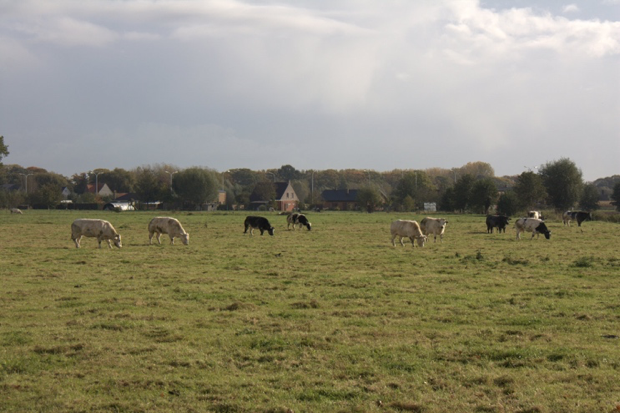
Interfaces of land use and landscapes in the peri-urban fringe of Brussels
Landscapes in the heart of Belgium, especially in the triangle Brussels – Ghent – Antwerp, are very multifunctional and fragmented. These pattern and processes of multifunctionality are especially visible in peri-urban areas and are challenging to characterise and map. They can be disentangled as complexes of interfaces of land use, next to customary land use categories. These interfaces will be explored during an interactive field workshop, consisting of two parts.
Firstly, the concept of interfaces of land use and landscape will be clarified in the field in the hamlet of Asbeek (in the municipality of Asse, west of Brussels), characterised by such a peri-urban landscape. The concept of interfaces is an invitation to an alternative reading of the landscape. Standard land use categorisation has two key characteristics: exclusivity (e.g. agriculture next to forestry) and hierarchy (e.g. cropland and pasture as subdivisions of agriculture). This categorisation dominates geographical analysis, land use modelling and land use allocation, and is matched by societal divisions. Many realities in land use and landscapes however, cannot be accommodated in this customary categorisation. We think of realities related to landscape fragmentation, land use mixes (e.g. in peri-urban areas) and land use transitions. Many of these realities have some 'interface' characteristic in space, time or functionality. Eleven interface categories have been defined so far.
Secondly, after lunch and with the images of Asbeek’s landscape in minds, we will discuss the interface concept in a group discussion. The significance of the concept in the diagnosis and design of landscapes, its role as communication tool, its connection to landscape ecological models, and its guiding role in land use planning and in the allocation of ecosystem services will be subject of the discussion. discussion. We look forward to hearing your take on this concept with reflections inspired by experience in your own home country, and with ideas of how policy can get on with this new reading.
|
Organisation: |
Elke Vanempten (Research Institute for Agriculture, Fisheries and Food ILVO), Valerie Dewaeylheyns (Province of Flemish Brabant), Frederik Lerouge (PXL University College ), Hubert Gullinck (KULeuven) |
|
Format: |
Bus trip to the excursion area, interactive workshop in the field |
|
Duration: |
Full day, lunch will be provided in Asse. This excursion leaves at 8h30 in front of the station of Ghent Dampoort and will be back around 17h30 (depending on the traffic around Brussels). |
|
Max. Participants: |
20 |

